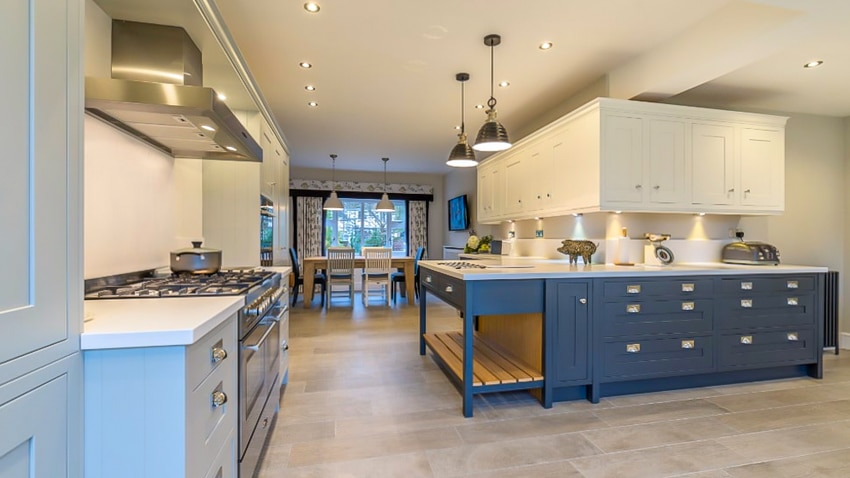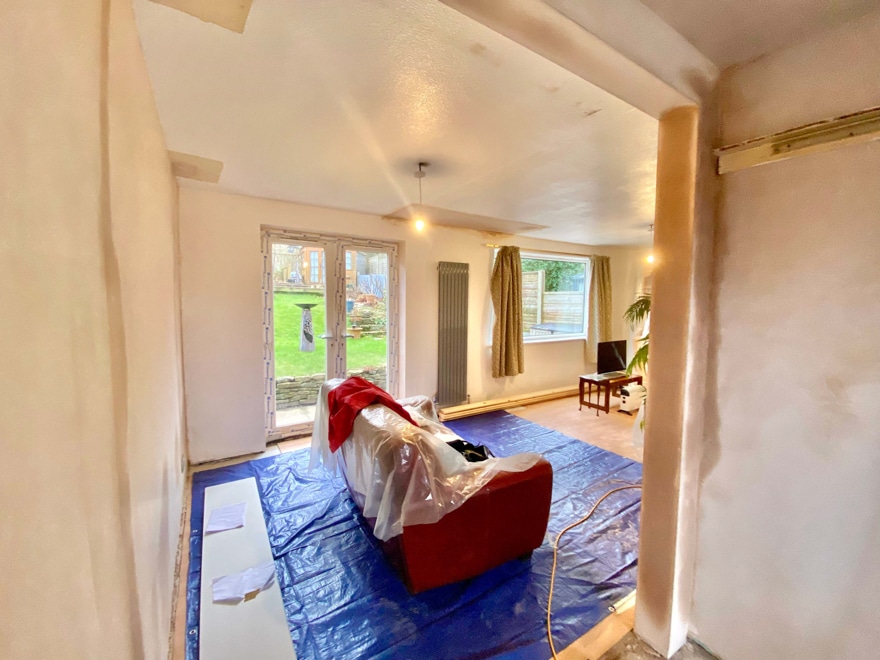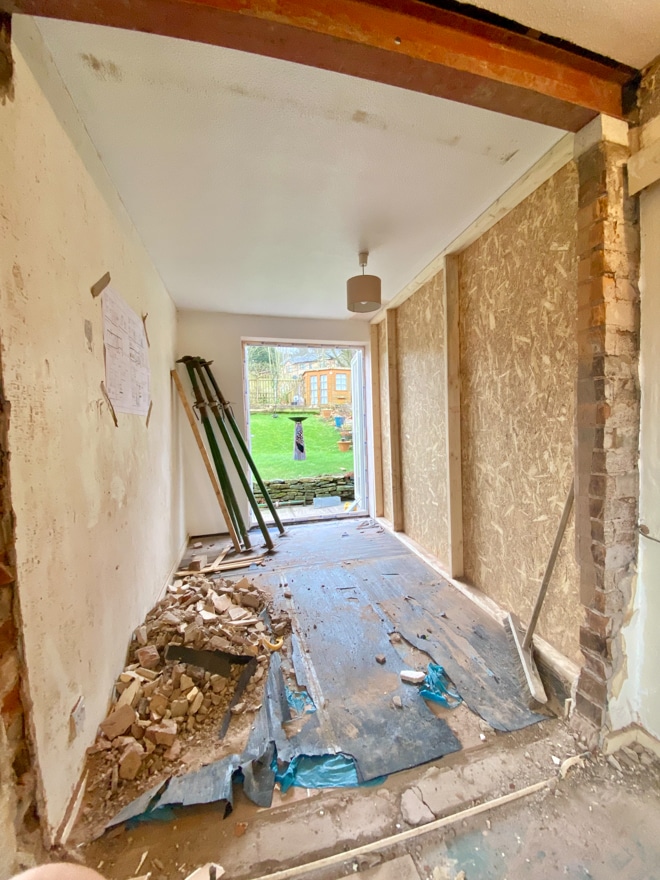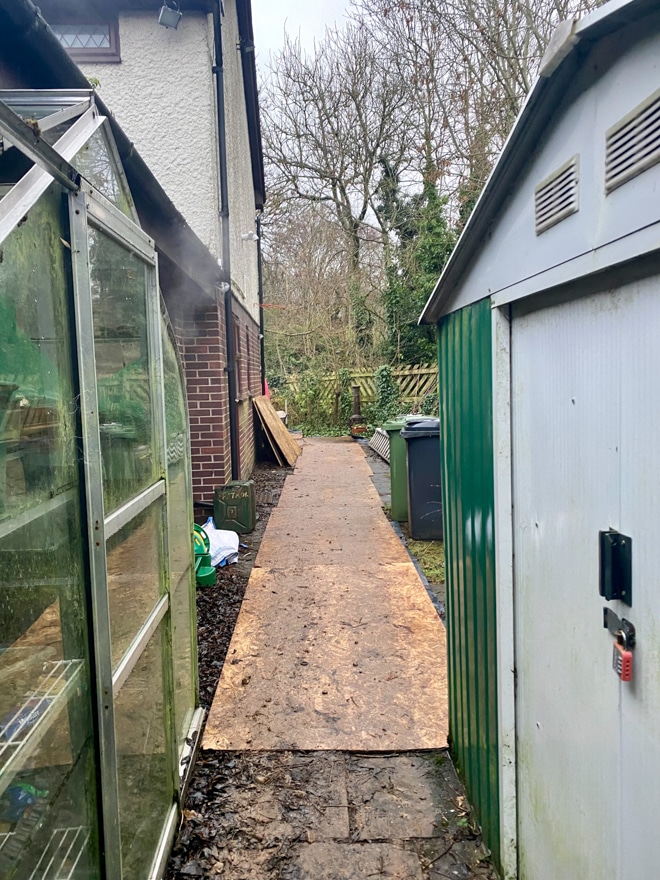We take care of your build
If so, you’ll be in safe hands with Adamson’s. Got a question, want an idea of price or ready to book your FREE home design visit?

As much as you love the idea of having a home extension or renovation, it can often feel a little daunting knowing you’re going to spend the next few months with disruption to your home and lifestyle.
We’ve compiled a few things for you to consider before you start.
Ensuring you have a comprehensive and secure construction experience will mean that you’ll need to check all insurances are adequately in place before the builder starts.
Homeowner’s Insurance:
Inform your insurer about the project and adjust coverage as needed, including valuables.
Builder’s Insurance:
Verify the builder has liability insurance covering property damage and injuries.
Check coverage limits and validity.
We would always advise that you speak to your neighbours in advance of the builders’ start date and advise them of restricted access or noise that there may be during the build.
Providing your builder’s contact details for queries or concerns during the build gives your neighbours peace of mind.
Adamsons’ has always been responsible for visiting neighbours before any start date to assure them that communication is the key to addressing concerns promptly.
Keeping your neighbours informed of any changes and updating them on the progress that may affect them will give them a clear indication that you care.
Getting your builder to build you a temporary kitchen in a room away from the construction will give you a little normality.
If they can’t fit you a temporary cooker, you can still use a fridge, microwave, kettle, slow cooker, oven top and a toaster.
Also, consider a temporary sink area for washing up, water access, ventilation, and food storage.
The simplicity and organisation of your temporary kitchen will maintain functionality during a disruptive time.
The convenience and hygiene of a temporary functional bathroom require thoughtful planning. Talk to your builder about all the options available.
Water access, shower alternatives, and toilet facilities (even if they are portable) within your home before construction starts will be critical to your well-being.
Living in or Moving out will depend on many options, but it’s worth exploring if you don’t think you can live with the mess during the build.
Things to consider:
Living In:
Living in your home during construction is cost-effective, and being on-site allows you to supervise the construction and answer any queries immediately.
It can also be more comfortable as you have all the familiarity of your home comforts and surroundings around you whilst it’s under construction.
You will need to prepare for daily disruptions to your routine as builders to and fro at different times of the day, as well as numerous trades being in your home at any one time.
You will need to consider dust, noise and the limited access you have to certain areas during the construction.
Moving Out:
Moving out will depend on your finances and the scope of the construction or renovation.
Consider if anyone in the family has health concerns, such as allergies or respiratory issues aggrivated by construction dust, and talk to your builder accordingly.
It may be that finding temporary accommodation is best during the construction period, by staying with family or friends, or short-term rent may be feasible.
Usually, contractors can work more efficiently, speeding up the construction process whilst your home is empty.
The decision to Live In or Move Out during construction is based on your specific circumstances, and it’s always advisable to talk to your builder first.

Protecting your house interiors during construction will prevent and maintain the quality of your living space, so you must speak with your builder to find out how much of this they will cover.
Protective covering on floors, carpets and furniture.
Installing temporary walls, and sealing off construction zones.
Securing glassware, artwork or anything valuable, preventing breakage from accidental damage or construction vibration.
Cleaning up at the end of each working day.
Adamsons always go to great lengths to protect any area we are working in and pride ourselves on the way that we leave every home and their owners’ feeling at the end of every working day.
Your builder should too!

Having thoughtful, organised living spaces will make it easier for you and your builder.
If your house doesn’t have the space to designate another room to store your furniture, consider renting off-site storage.
Knowing your belongings are safely stored and protected will prevent worry about potential damage, so not only box small items, but protect them with dust sheets too as construction dust can get everywhere.
Whilst most builders and contractors are reputable and professional, we always advise taking necessary precautions when securing your valuable possessions.
Not only does it give peace of mind to all involved, but it helps to ensure a smooth and secure home renovation process.
Not only will you need to consider the interior of your home during an extension or renovation, but you will also need to consider the exterior.
Discussing this with your builder before they start will give you a good indication of how much you need to do.
Adamsons’ protect all driveways and pathways with hardboard before we start.
However, you will also need to consider securing or moving your garden furniture, covering up plants and landscape area and allowing a designated area for construction materials and tools.
Providing clear guidelines for the builders working around your garden will minimise the impact of construction and ensure its safety during the building process.

Discussing your vision, budget, and expectations with your builder beforehand will create trust and make your renovation enjoyable.
Through thorough planning, outlining timelines and potential challenges it will help you to stay flexible for unexpected issues and maintain a positive, collaborative attitude.
Regular check-ins and site visits ensure a smooth and rewarding renovation experience.
Whatever you choose to do, enjoy the process as it’s always worth it once your get the home of your dreams.
